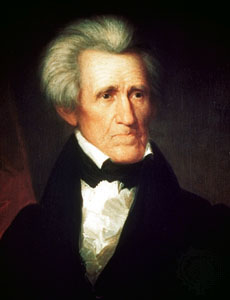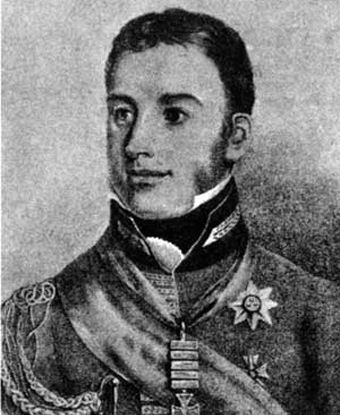Between January 8-18, 1815, the United States fought against the British in the Battle of New Orleans, the final major battle that took place during the War of 1812. The British lost over 2,000 of their 14,450 men, and the Americans only 62 of their 4,700 plus. At the end of the battle, the British forces withdrew, causing for a decisive victory for the United States.
While American diplomats were gathering in Britain for a truce to put the war to an end, Britain’s efforts had doubled after just defeating Napoleon after being at war with France for years. After a few smaller battles, the British decided to invade New Orleans. New Orleans was a new American city, and a vital one at that, with an important seaport. The British realized that by invading New Orleans, then they could take hold over the Mississippi River and the south.
Upon learning the British were planning an attack on the city, Major General and future president Andrew Jackson rushed to defend New Orleans with his men. For the past year, Jackson had been subduing Indians in Alabama while getting in the way of British operations in the Gulf Coast, earning him the nickname of “Old Hickory”. After spending time in British prison during the Revolutionary War at thirteen years old and his mother and brother dying at the same time, Jackson was ready to fight them in battle. As soon as British forces were visible near Lake Borgne, Jackson was ordering his men to all take weapons and get ready to defend the city. He was able to raise a force of 4,500 men that consisted of not only men in the army, but also free blacks, citizens of New Orleans, tribesmen from the Choctaw tribe, and the well known pirate and smuggler jean Lafitte. Though the American forces were much smaller compared to the British, Jackson made sure his men were prepared to fight and defend the city to their deaths.
On December 23, 1814, Jackson launched an attack on British forces at night there were camped nine miles south outside of New Orleans. With help from slaves, he was able to widen the Rodriguez Canal into a defensive trench. Using excess dirt, he also built a seven-foot-tall rampart that had timber buttresses. On December 28, a small skirmish was fought, and a few days later in New Year’s Day, there was a massive artillery duel.Meanwhile, British Lieutenant General Sir Edward Pakenham began devising a plan for a two-part frontal assault on the Americans. Pakenham was confident that him and his men would easily be able to defeat the Americans with the plan they were working on.
Pakenham’s plan was that a small force would be sent to retrieve Americans guns and weapons. From there, they would turn the guns on the Americans and get Jackson caught in the middle of a crossfire. 5,000 men would then charge forward towards the American line located at the Rodriguez Canal in two columns.
At the break of dawn on January 8, 1815, Pakenham’s plan went into action. Immediately though, they were met with unexpected barrage manned by Jackson and Jean Lafitte’s men. Main British forces continued to advance towards the Rodriguez Canal while Colonel Robert Rennie led an advancement along the riverbank. American men along the riverbank were quickly overwhelmed by Rennie and his men, that they began scattering around. Rennie shouted out to his men that “the day is ours!” but was shot right after by rifle fire coming from Line Jackson. His men began retreating when they lost their commander, but were then cut down in half by musket balls and grapeshot from the Americans.
American rifle and artillerymen were given clear sightlines as to where the British were when the early morning fog had risen with the sun. Immediately, American men began shooting cannon fire at the British, making large holes in their defenses. Men and equipment both were flying all over the place with the cannon fire. British lines continued to be destroyed as they advanced by musket shot as Jackson watched from above, telling his men to continue fire and that they could end them right then and there. The Americans continued to fire, and British soldiers were falling left and right, many even shot more than once. The attack was becoming much more disastrous than Pakenham and his men ever expected it to be, with the Americans coming back strong despite their army being very unprepared compared to that of the British. Pakenham began leading his men to the front to take down Line Jackson, but more and more of his men were falling due to rifle and cannon fire. It became so chaotic, the British began fleeing away from the battlefront. Pakenham and this group were then surprised with a blast of grapeshot as they tried to aid the fleeing men. Soon after, Pakenham died from the grapeshot.
Most of the British had retreated and fled by this time, but a few troops stayed to try and climb the parapets. When they realized they had no support, they withdrew as well. By the time the British were able to seize American artillery position, it was already too late and night had begun to fall. It was a day full of chaos, disaster, and loss, especially for the British who lost many more men compared to the Americans. 285 British men had been killed, 1,265 wounded, and 484 captured making for a loss of 2,034 men. The Americans however, only lost 62 men, with thirteen killed, 30 wounded, and 19 missing.
Jackson and his men paraded into New Orleans shortly after the battle, playing “Yankee Doodle” followed by a huge celebration in the city. Many newspapers began saying that Jackson was a savior to their country by defending the city so well and driving out the British, ultimately putting the war to an end.
For the next ten days, the British remained in Louisiana without making any more efforts or advances. After losing so many men and commanders, they knew it would not be possible to invade New Orleans any more. They led a naval attack on Fort St. Philip that did not go well, and from there they boarded their ships so they could sail back to Mexico. By February 19, there were no more british men remaining in Louisiana, as they had all evacuated and retreated. On February 16, 1815, the Treaty of Ghent was ratified by Congress, and the war officially came to an end. There was no clear winner of the war, however Americans celebrated Jackson and praised him for winning the war with the Battle of New Orleans.





